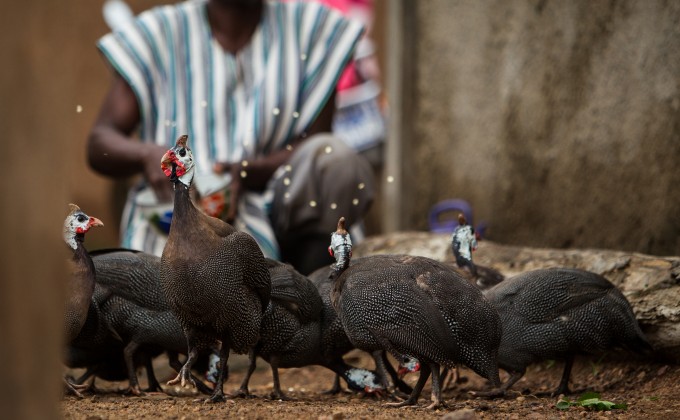
Only eight months ago, Sintaro Mahama’s dream of expanding his farm into a training facility for farmers existed only on paper. Mr. Mahama’s farm is on the outskirts of Tamale, in the Northern Region of Ghana. On the other side of the world in Sherbrooke, Canada, a group of seven university students was preparing blueprints and spreadsheets while fundraising tens of thousands of dollars to help bring Mr. Mahama’s vision to life.
Mr. Mahama is the CEO of Tibzaa Integrated Farms, a social enterprise that trains small-scale farmers. The word tibzaa means “total healing” in the local Dagbanli language, and since its establishment in 2011, the enterprise has trained over 1,400 small-scale farmers.
The Canadian students are mostly engineers in their final years of study at Sherbrooke University. World University Service of Canada (WUSC) and Centre d’etude et de cooperation international (CECI) are two Canadian NGOs that ran a program to pair these two unlikely groups together.
During 2018, Mr. Mahama and the students collaborated closely over Skype and email to design and build an on-site training facility at Tibzaa. The facility aims to help young women and men farmers learn best farming practices and agribusiness strategies in a safe, clean, and modern environment. Tibzaa will offer a range of classes, taught by local agricultural experts. Women and youth from local communities will be invited to participate in training opportunities at the graduate and non-graduate levels.
As someone who has travelled and been educated around the world, Mr. Mahama says that what drew him back to his hometown of Tamale was a desire to give back to the people in his community.
He says, “I want to impact whatever experience and knowledge I’ve acquired over the years and transfer it back to my people.… I want to support them and create opportunities for them.”
The training facility was designed to answer a need in Ghana’s Northern Region, where poverty rates are the highest in the country. Subsistence and poultry farming are the primary economic activities, but local farming practices are not always the most efficient or the safest.
From September to December 2018, the Canadian students worked on the building alongside a team of labourers and Tibzaa staff. The project was not without its challenges. Limited time and resources, both financial and material, meant that the female dormitory and the kitchen were delayed. But with the kitchen’s foundation complete and the dormitory finished, Mr. Mahama is optimistic that phase two of construction can begin later this year and the building be fully completed.
Laurie Bernier-Beaupré is a Canadian political science student and gender advisor to the project. Her role involved visiting communities as well as local junior and senior high schools with Tibzaa project manager Hikimatu Kadiri to encourage more young women and girls to participate in professional agricultural training programs. The pair focused on documenting the absence of women in a predominantly male field. They shared their findings with project partners such as the Tamale Technical University to encourage institutes that offer technical vocational training to boost female enrolment.
In December, the students celebrated the end of their work and the commissioning of the training facility. Ms. Bernier-Beaupré describes feeling proud and validated.
She says: “As soon as [the women] entered the classroom, they began to discuss among themselves about which seating position they would have during the training sessions. To see the women of these communities being proud and taking ownership of the project and developing a sense of belonging is what I am most proud of.”
Mr. Mahama is excited about the new facility. He says, “It’s one of the best projects we’ve ever been a part of.”
Tibzaa is expected to train 5,200 people in the new facility over the next two years. It’s an ambitious goal, but an attainable one. Tibzaa has earned a reputation in the community as a reliable and trusted company and Mr. Mahama is committed to providing a sustainable approach to reducing poverty in the region.
He says, “This is only the beginning. I see [Tibzaa] becoming one of the best hands-on skills training centres for agribusiness in all of Northern Region.”
The Uniterra program provided funding for this story.